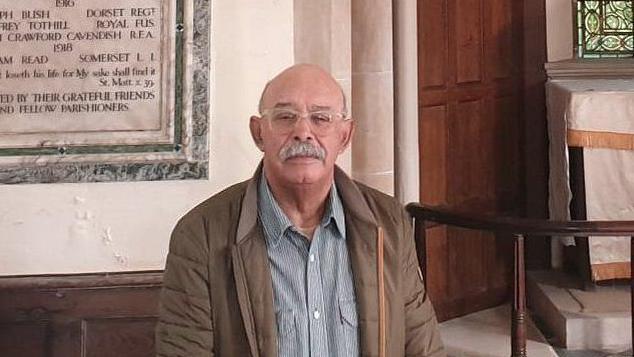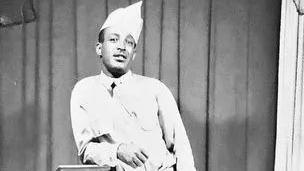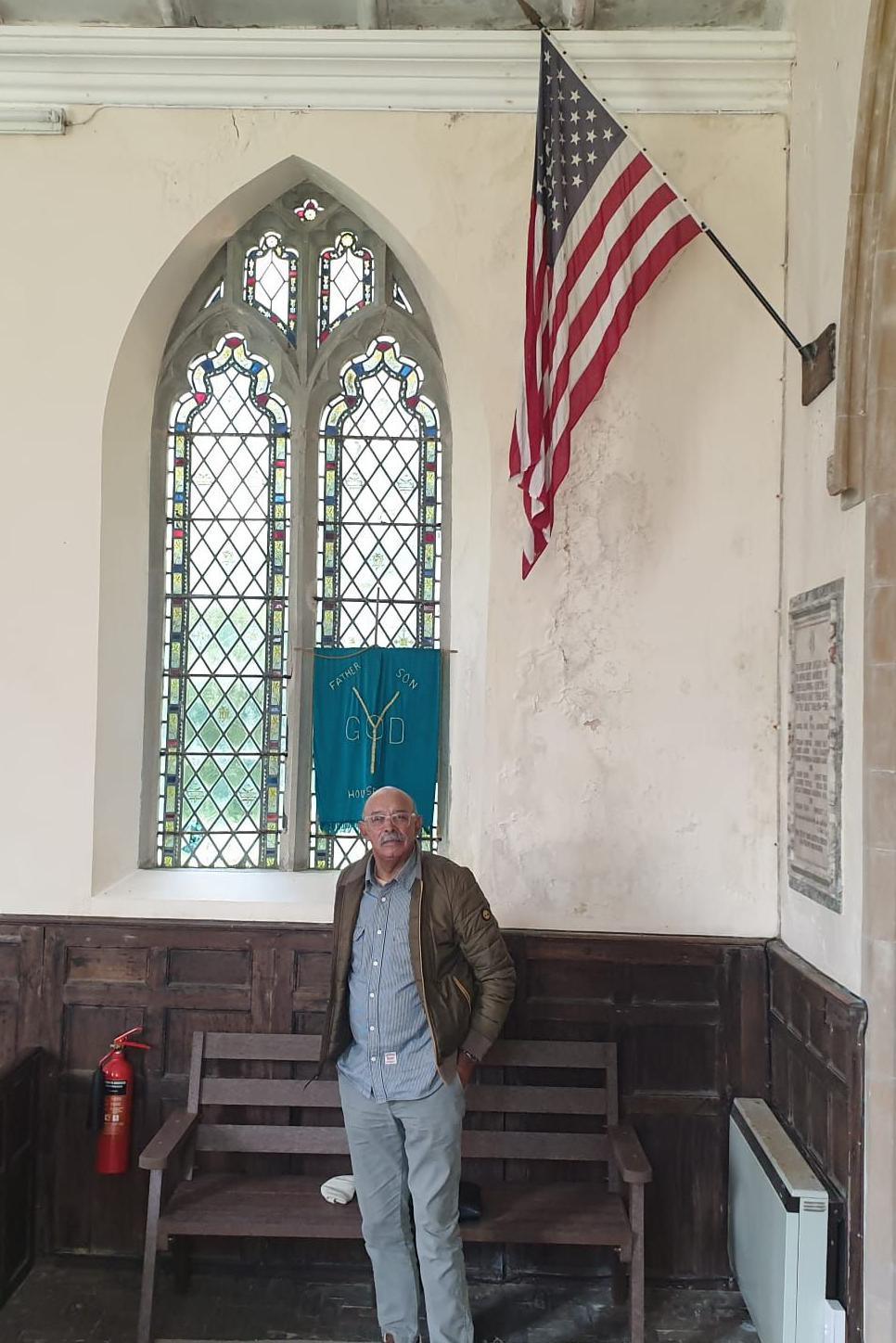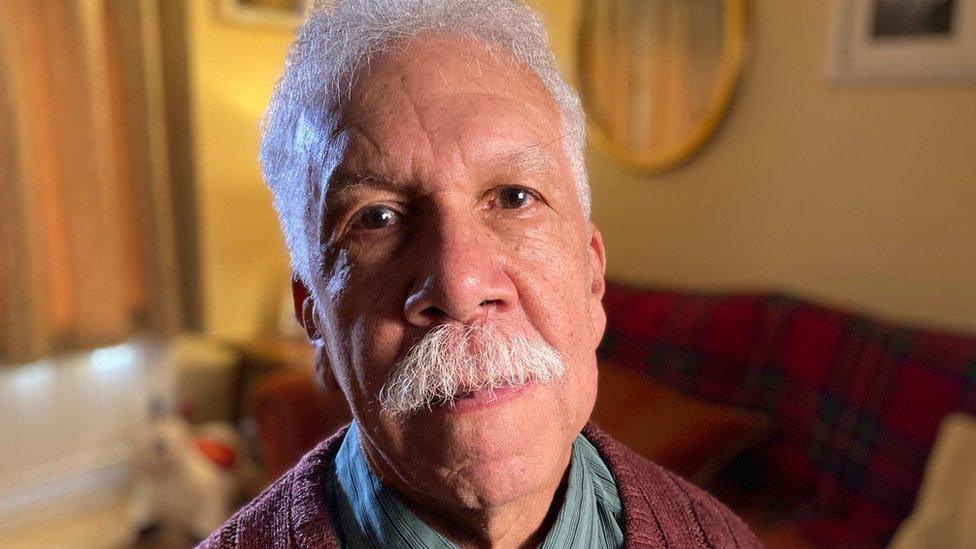Remembrance tribute to GI father

John Stockley grew up not knowing the identity of his birth father
- Published
The son of a black US soldier, stationed in Dorset during World War Two, has paid a remembrance tribute to the father he never met.
John Stockley, 79, only recently discovered the identity of his father - Madison Glover, a GI who had been billeted in his mother’s guest house in Weymouth after the US joined the war.
He took part in the annual remembrance events at the US War Memorial in the town.
Mr Stockley said his father and his comrades had been "airbrushed out of history".

John Stockley discovered his father was US GI Madison Glover
Tens of thousands of US troops flooded into Dorset ahead of the D-Day landings in 1944.
Weymouth was one of the launching points for the invasion of Normandy and the beginning of the liberation of mainland Europe from Nazi occupation.
Among the first to arrive were the Pioneers - black regiments tasked with preparations such as widening roads and gates ready for the arrivals of the bulk of the American military machine.
With the Jim Crow laws still in place, the African American soldiers faced discrimination within the Army as they did at home.
They were placed in all-black units, had separate facilities and accommodation, and were forced into behind-the-line jobs of servitude and often denied guns.
There were also instances of black soldiers being murdered by white counterparts.
Listen to more on BBC Sounds
Mr Stockley said his mother ran a guest house in Weymouth which was commandeered by the military and several solders stayed there.
"Fallen in love, one night stand? Who knows? But she got pregnant with me," he said.
He said his birth father was "never spoken about" while he was growing up.
"I never knew - they kept things quiet as families did in those days," he continued.
Mr Stockley said he was subjected to abuse and name-calling, with his mixed-race appearance put down to a "birth throwback".
In 2017 John Stockley told BBC Woman's Hour about his experience growing up
Historian Louisa Parker documented the experiences of black US servicemen in her book, 1944 We Were Here: African American GIs in Dorset.
She said local women were known to have had relationships with black soldiers.
"The face of Dorset was changed with the presence of thousands of African-American young men in a rural English county - this was the first and probably only time Dorset has had a large black population," she continued.
"For children and adults it would have been the first time they saw a black person outside of the movies - they appeared to have made quite an impression, described by locals as friendly, courteous and polite."
The soldiers worshiped at local churches - white solders in the morning, black soldiers in the afternoon.
Ms Parker said local people would stand outside the churches and listen to them sing African American spirituals.

John Stockley said he had childhood memories of the US flag in Moonfleet's church
Mr Stockley said he did have a sense of his US heritage when he later attended church services in Moonfleet as a small child.
A stars and stripes flag was placed alongside a memorial, in the church, to the US soldiers killed during the war.
"My grandmother used to hold me up to touch the flag - why did I want to touch that flag? Why did I know that was part of me?" he said.
It was only in his 70s that Mr Stockley was able to discover more about his heritage, initially through using a DNA test kit.
He discovered his father was Madison William Glover who had served with the 1313 Engineering company in the US Army and had died in 1964.
Through a Channel Four documentary, Britain's Secret War Babies, external, Mr Stockley found out he was not an only child and still had living relatives on his father’s side.
He travelled to San Diego in 2022 to meet his siblings for the first time.
Mr Stockley joined others paying their respects at the annual remembrance ceremony at Weymouth's US war memorial
He said he knew of at least 15 other Weymouth residents fathered by black GIs during their stay, in the war years, with more still to be revealed.
"My father was an African American GI who came here to fight against tyranny, but he had his own battles - it was a segregated Army," he said.
"Yet he still came here to fight in a war - our war."
Get in touch
Do you have a story BBC Dorset should cover?
You can follow BBC Dorset on Facebook, external, X (Twitter), external, or Instagram, external.
See also
- Published30 January 2022
